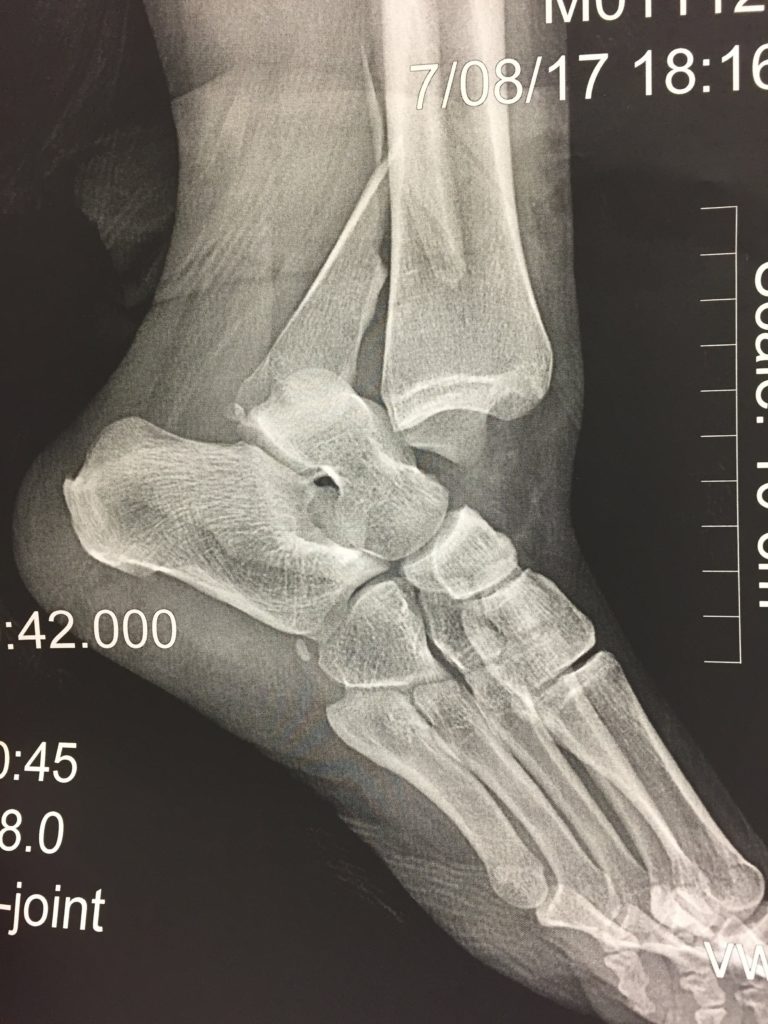It was the perfect Saturday afternoon in July – 85 degrees and sunny. Everyone was in a good mood (which is rare when you have an infant and a toddler running around). So, while the baby was napping, we decided to have a little outdoor fun. I had just bought a slip ‘n slide so we decided pull it out and get it all set up. My daughter (3 years old at the time) was ecstatic. She had heard all about slip ‘n slides but had never experienced one herself. We blew up the ramp, secured it to the ground, and connected the water hose. My husband went first. My daughter went second. Then, it was my turn. I took a few quick steps and jumped onto the slip ‘n slide feet first…*CRACK*. I immediately knew it was bad. I felt intense pressure and pain like I had never felt before. I looked down at my ankle and it was completely distorted. I couldn’t move. It hurt terribly but I couldn’t cry because my daughter was looking down at me with concerned eyes and I didn’t want to worry her. Next thing I knew, I was being loaded up onto a stretcher and taken to a nearby hospital.

At the hospital, it was revealed to me that I had dislocated my ankle and fractured my fibula. After having worked for an orthopedic company, I knew that meant at least 6 weeks of no weight bearing followed by lots of physical therapy. I was devastated – mainly because I knew I wouldn’t be able to pick up my 7-month old baby. That day, they reset my ankle and 4 days later I was having surgery. My surgeon inserted a Stryker plate and 7 screws to keep my ankle in place and allow the bone to re-build. I was officially bionic.
***
I know my story is not rare. We see athletes break legs on a routine play. We see grandparents break hips from a minor fall. We see children break arms just playing on the playground. These are all unfortunate experiences but aren’t we lucky to be living in a time where we have orthopedic surgeons and metal implants to put us back together again?
Metal implants are often made of Titanium, cobalt-chromium, or 316L stainless steel. These metals are used because they are corrosion-resistant, are durable, and because they are compatible with the human body. Biocompatibility is of utmost importance for any type of medical device. The Food & Drug Administration (FDA) requires that certain classifications of medical devices, like those that are implanted for long periods of time or those that come into contact with blood and tissues, go through a series of biocompatibility tests prior to approval.

The list above is not all-encompassing. Depending on the type of implant, how long it will be implanted, its use, and its risks, there may be other testing that is required. For more information on biocompatibility testing and what is required for different types of implants, visit the FDA Guidance for Industry. The mandate for biocompatibility testing should reduce or eliminate concerns related to permanent implants. However, if there are any concerns always be sure to check with your surgeon regarding if an implant should be removed and when it should happen.
Know your stuff. Worry less. And as always…
